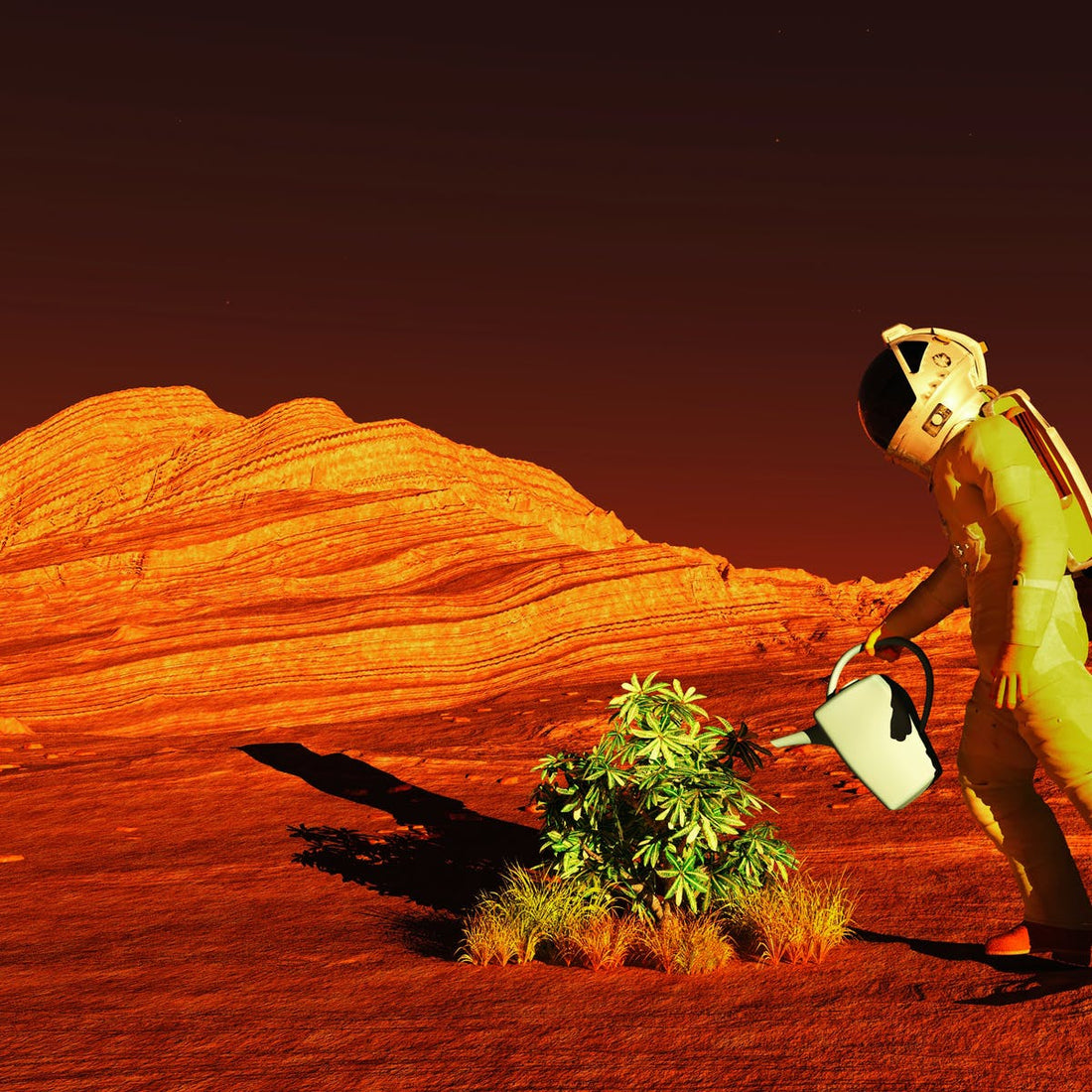
Can We Plant Trees On Mars And Create An Atmosphere?
Share
With the upheaval of commercial space thanks to SpaceX, folks are really getting into the whole Mars thing. Maybe it's because we're giving up on Earth - and the people who live there - or we're just invested in violently thrusting into the deep unknown?
Whatever the case, we have a new question from a fan in our Australian Space Society.
So let's dive right in and Ask ARSE!
"G'day guys hope it's okay if I give you a probe. I have been reading your stuff on Mars and was wondering why we can't let an atmosphere grow naturally with trees like on Earth? Might be a silly question but thinking more along the lines of the barriers to us doing it. Cheers"
- Travis
Thanks for the question Trevor and a good one at that!
Let's be pragmatic and begin at the beginning.
Of all the planets in the solar system (excluding Earth), Mars is easily the most habitable. Just by having a fairly solid surface puts you on the podium of habitability, mind you.
But even so, there's a fundamental flaw in planting trees to create an atmosphere similar to ours on Earth. And that's because trees are not only comparatively slow to grow, but trees only contribute a tiny amount towards Earth's overall oxygen.
The bulk comes from our oceans.

Image: Our oceans or "water deserts" make up most of our atmosphere's oxygen.
This might seem strange, but at least 70% of our atmospheric oxygen we depend on comes from the ocean. Marine plants and plant-like organisms like phytoplankton create the lion's share of all the oxygen in our atmosphere.
These ocean-living plants release molecular oxygen as a waste product of photosynthesis (as do most plants). In photosynthesis, plants capture sunlight and use its energy to split carbon dioxide and water, making sugar for itself and releasing oxygen as a by-product. The dominance of ocean life as earth's top oxygen producer makes sense when you consider that the majority of the earth is covered with ocean.
So in summary, the oxygen we depend on as humans, is aqua plant farts.

Image: A topographic comparison of atmospheres. Mars' sucks, literally.
Secondly, Mars has no air.
Well it has some air.
It has 0.087 psi of surface pressure. But that's nothing close to Earth's sea level pressure of 14.69 psi. It's a negligible 0.5% of our sea level pressure, actually. Mars' atmosphere resembles about 35 km above Earth's surface.
If you look at the past of Mars it may have housed a higher level of pressure, even holding liquid on its surface. But the Mars we look at today cannot even hold a gaseous atmosphere, let alone liquid, with its weak pressure. The atmosphere of Mars has been losing mass to the vacuum of space throughout history, and continues today and will continue long into the future.
Take a jar to Mars and open it and the air in the jar escapes.
Put the lid back on and close it.
In that jar is a better vacuum than you can ever hope to create on Earth

Image: A whacked out 70s style concept for a Mars' habitat. That's honestly pretty spot on.
*Not pictured: the colonists feelings of despair.
Thirdly, Mars gets half as much sunlight as Earth.
This means the atmosphere is filtered only 50% of the time and whatever plant life there will turn yellow, sickly and dead within a week. Or if they survive, the other 50% will see them sterilised from the excess UV radiation as the planet see-saws between the two.
But...
That wouldn't happen because they'd freeze instantly in the near-vacuum that is Mars' atmosphere.
Also, Mars' soil is mostly toxic.
If you account for all these, you can plant stuff on Mars.
But it won't be feeding the atmosphere.
It will most likely be in an artificial bubble with astronauts tending to them like terminally ill patients for their entire life on Mars.
The sheer reality is, Mars is the closest thing to habitable that we have within our grasp. And even then, Mars is more habitable than the moon like you are more qualified to perform brain surgery than someone's pet.
I mean, in reality, Antarctica is more habitable than the moon and Mars. compared to them, Antarctica is a paradise.
If the goal is to colonise other planets, namely Mars, it can virtually be done in a handful of ways.

Image: Concept from the United Arab Emirates' plan to colonize mars with 600 people in 100 years.
One is sending automated factory ships into Earth's orbit and mine asteroids for metals then comets for organics and water. Those ships then build space stations & those are made to be self replicating. Once the first generation of stations is up and running and building the next, the original ships build a shuttle fleet to fetch colonists from Earth. Thereafter the process is self sustaining & beyond reach of politicians and accountants on Earth.
Another is Musk's infamous plan which we wrote about in depth here and his nuclear Starships here that recommend reading.
Even if his plan comes to fruition, we would be absolutely wrong to found a colony on Mars. Which seems like a moral high ground, and perhaps it is. But a Mars colony has all the disadvantages of space a the major one of its own, that having escaped Earth's gravity, the colonists would have trapped themselves with even fewer resources to escape the planet.
But we're getting off topic as these usually do.
We hope this answered your question Trevor and thanks again for probing ARSE.





1 comment
Thanks for the detailed answer,i was just sitting around and the exact question popped up in my head, I’m glad I got the answer